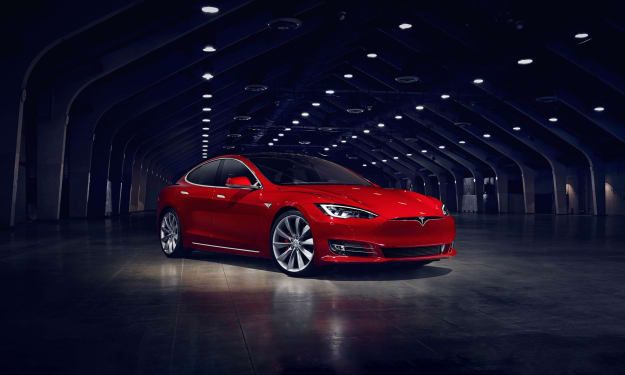Things You Should Do Before Buying or Leasing a Car
Buying or leasing a car in the near future? Congrats. You have a lot of work ahead of you, if you want to get a good deal.

Getting a good deal when buying or leasing a car isn't easy. You have to deal with red tape, find a good loan (or lease), and often have to fight tooth and nail for every little number you get at your advantage.
Speaking as someone who's bought a bunch of cars and considered leasing in the past, I've managed to whittle down the art of figuring out how to get a good deal on vehicles. More often than not, it deals with making the right prep work before you hit the dealership.
If you want to save thousands of dollars and protect yourself from a bad deal, I suggest you start off by doing the following things...
(Note: For the sake of this article, I'm assuming that you are not going to be paying for a car in cash.)
Whether you're buying or leasing a car, you will most likely need a loan in order to make it happen. The thing about loans is that they don't allow you to have a "no down payment" loan for a car unless you have perfect credit—and even then, the payments tend to be way too interest-rich to be worth your time.
Saving up for a down payment doesn't have to be brutal. You can use an app like Qapital to save up for months before you actually head to a dealership at all by just adding a "round up" rule for any transactions you make.
At the very least, you should save up a minimum down payment of $1,000 to $2,000. The more you save, the better off you'll be.
Do the math on whether you should buy or lease.
Both buying and leasing cars have their own perks and pitfalls. Most of the time, you have to crunch the numbers to figure out whether buying a car or leasing a car is right for you.
Some people would be foolish to buy a car, when the tax write-off they'd get from leasing one would save them thousands. Others, due to the long commutes they have, would be silly to lease a car, simply because they would pay so much in fees that they'd eventually pay more than the purchase price.
Leasing offers tax write-offs to business owners, but heavily restricts how many miles you can drive and where you can service your car. If you get into an accident, it also could wreck your stuff.
Buying allows you to keep the car and do whatever you want with it. However, there aren't always tax write-offs involved in this. You will need to figure out which one is best for you before you make a move.
True story: whether you're buying or leasing a car, you'll still need to have great credit to score a good deal. Some car dealerships won't accept lessees with low credit scores, or will tack on a fee for them to lease at the dealership.
When it comes to trying to buy a car from a dealership offering financing, your credit score will basically make or break your ability to find a good deal.
You'd be shocked at how much different an interest rate between a fair credit auto loan and a good credit auto loan can mean. The best way to avoid getting a high interest rate is to find out what your credit score is and do what you can to improve it.
An easy way to improve credit (aside from paying down debt) is to dispute negative marks on your score. Apps like Credit Karma allow you to do that via an automated form. It's one of the best apps that monitor credit scores, as well as one of the more reliable ones.
You'll also need to research interest rates for your credit score.
Whether you're buying or leasing a car, you should be aware of what to expect with your credit score. While lessees don't have to take out a loan, they still do have a lease rate to take into account.
By knowing what is standard among people in your credit score bracket, you'll be better able to determine whether the deal you're getting is worth it.
I'm not going to lie. There are cars, and there are cars. Whether you're buying or leasing a car, you need to make sure that you find one that is both reliable and suitable for your lifestyle.
Research the potential cars you want to pursue, as well as their amenities and reliability. Even if you're leasing, you don't want to end up with a lemon. It could mean that you end up footing the bill for repairs, or find yourself on the side of the road during a pressing meeting.
When in doubt, ask a mechanic what they think about the car in question.
You also will have to take a good look at your trade-in.
You shouldn't have to get your trade-in details, but you should be aware of any issues that you might have with it before you hit the dealership. They will lowball an offer for this thing, which you shouldn't have to accept. The more you are aware of issues, the less they can skirt past you.
Honestly, you might be better off choosing to sell the car yourself to contribute to a better down payment. Dealerships won't often give you a good deal.
It's obvious why you should look into this when buying or leasing a car. Car dealerships are not created equally, and some will do what they can to charge you more than the real MSRP of the car. This can lead to a lot of money lost.
Before you step into any dealership, find out what the lowest rates for the car's price would be and learn the TrueCar value. This also gives you the upper hand in negotiations if you choose to buy the car.
Learning the value also allows you to determine whether the leasing company is giving you a good deal, or if you should look elsewhere for a better offer.
Prep yourself for sales tactics.
I'm a firm believer that you should never go into a car dealership not knowing what to expect. Salesmen are tricky and treacherous, which is why it's important to have the upper hand whenever you talk to them.
A good way to prep yourself for "the talk" when buying or leasing a car is to learn all the tactics salespeople use to make you buy more—or just buy a car that isn't right for you. The more you know, the more immune you are to the tactics.
This is another important step to take before buying or leasing a car. This is a major purchase, and you should always look to experts to determine whether or not it's a good car.
You should never buy a car without having a mechanic take a look at it first. Using an app like Mechanic Advisor will let you find a highly-rated mechanic in your area for third-party inspections.
Finally, get ready to get rid of your old car.
Maybe I'm a sorry sap, but I get emotionally attached to my cars. That's why part of prepping for buying or leasing a car always seems to involve getting over the fact that I'm getting rid of my old car.
Sorry car, no hard feelings, thanks for the memories. It's time to get a newer model now, and that's not necessarily a bad thing.
About the Creator
Skunk Uzeki
Skunk Uzeki is an androgynous pothead and a hard partier. When they aren't drinking and causing trouble, they're writing articles about the fun times they have.






Comments
There are no comments for this story
Be the first to respond and start the conversation.